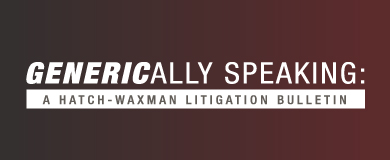- Acumen Powered by Robins Kaplan LLP®
- Affirmative Recovery
- American Indian Law and Policy
- Antitrust and Trade Regulation
- Appellate Advocacy and Guidance
- Business Litigation
- Civil Rights and Police Misconduct
- Class Action Litigation
- Commercial/Project Finance and Real Estate
- Corporate Governance and Special Situations
- Corporate Restructuring and Bankruptcy
- Domestic and International Arbitration
- Entertainment and Media Litigation
- Health Care Litigation
- Insurance and Catastrophic Loss
- Intellectual Property and Technology Litigation
- Mass Tort Attorneys
- Medical Malpractice Attorneys
- Personal Injury Attorneys
- Telecommunications Litigation and Arbitration
- Wealth Planning, Administration, and Fiduciary Disputes
Acumen Powered by Robins Kaplan LLP®
Ediscovery, Applied Science and Economics, and Litigation Support Solutions
-
April 23, 2024David Martinez Recognized Among Top 100 Lawyers in Los Angeles by LA Business Journal
-
April 15, 2024Robins Kaplan Named to 2024 BTI Client Service A-Team
-
April 9, 2024Robins Kaplan LLP Files Complaint Against Social Media Giants Meta, Snap, TikTok on Behalf of Spirit Lake Nation, Menominee Indian Tribe of Wisconsin
-
April 30, 2024Navigating Generational Dynamics
-
May 2-3, 2024ACI Advanced Forum on Managed Care Disputes and Litigation
-
May 6, 2024Litigating with the Legends
-
March 2024e-Commerce: Pitfalls and Protections
-
March 22, 2024‘In re Cellect’:
-
March 14, 2024How Many Cases Have You Tried to a Verdict?
-
September 16, 2022Uber Company Systems Compromised by Widespread Cyber Hack
-
September 15, 2022US Averts Rail Workers Strike With Last-Minute Tentative Deal
-
September 14, 2022Hotter-Than-Expected August Inflation Prompts Massive Wall Street Selloff
Find additional firm contact information for press inquiries.
Find resources to help navigate legal and business complexities.
Allergan, Inc. v. Apotex, Inc.
Granting plaintiffs' motions seeking a permanent injunction after finding that the patents were valid and infringed.
July 15, 2013

Case Name: Allergan, Inc. v. Apotex, Inc., Civ. Nos. 1:10-CV-68, 1:11-CV-298, 1:11-CV-650, 1:12-CV-321, 2013 U.S. Dist. LEXIS 57656 (M.D.N.C. Apr. 23, 2013) (Eagles, J.)
Drug Product and Patent(s)-in-Suit: Latisse® (bimatoprost); U.S. Pat. Nos. 7,351,404 (“the ’404 patent”) and 7,388,029 (“the ’029 patent”)
Nature of the Case and Issue(s) Presented: The court found the patents-in-suit valid and infringed. The court ordered the effective date of approval for each of the defendants’ ANDA’s to be no earlier than the expiration dates of the patents-in-suit. After the court’s order, plaintiffs sought a permanent injunction. In addition to opposing the motion on the merits, defendants opposed the injunction on three procedural grounds—(i) that the motions violate their due process rights since plaintiffs submitted affidavits in support of the motions; (ii) that the injunctions would violate Fed. R. Civ. P. 52(a)(1) because the court did not make factual findings or conclusions of law concerning an injunction; and (iii) plaintiffs’ motion constitutes an attempt to belatedly bifurcate the injunction remedy and plaintiffs waived such a request by not raising it in any pleading other than the complaint. The Court rejected defendants’ procedural arguments, instead finding that plaintiffs demonstrated irreparable injury, that inadequate remedies at law were available, that the balance of hardships weighs in plaintiffs’ favor, and that the public interest would not be dis-served by an injunction. The court issued permanent injunctions.
Why Allergan Prevailed: Plaintiffs prevailed because defendants’ procedural arguments were unpersuasive. The court also found that the injunction would only prevent defendants from commercial uses of the infringing products and not developmental efforts. Plaintiffs had not waived the remedy of a permanent injunction. While plaintiffs never raised injunctive relief at the final pretrial conference, the court found that plaintiffs’ referenced injunctive relief in the pretrial brief and the complaint. Moreover, permanent injunctions are routinely granted in Hatch-Waxman cases and defendants failed to identify any evidence not offered at trial relevant to a permanent injunction. The court did strike the affidavits plaintiffs filed in support of their motions. Plaintiffs offered no reason as to why those affidavits could not have been introduced at trial. Finally, the court determined that its infringement order was not a final judgment and thus, made findings to support its granting the injunctions. The court found irreparable harm since the defendants did not dispute that they are direct competitors, and that plaintiffs will lose market share if the generics launched. The court further found that the infringement order did not sufficiently protect plaintiffs’ interests, since defendants could still enter into a licensing agreement with another company seeking FDA approval.
Related Publications
Related News
If you are interested in having us represent you, you should call us so we can determine whether the matter is one for which we are willing or able to accept professional responsibility. We will not make this determination by e-mail communication. The telephone numbers and addresses for our offices are listed on this page. We reserve the right to decline any representation. We may be required to decline representation if it would create a conflict of interest with our other clients.
By accepting these terms, you are confirming that you have read and understood this important notice.
